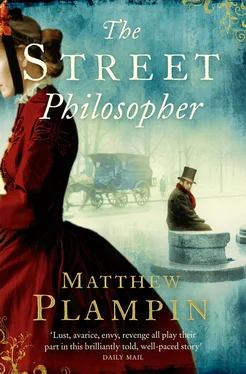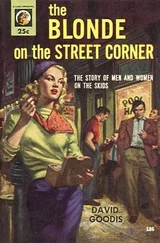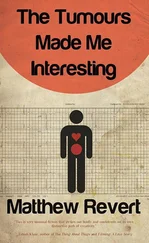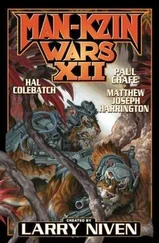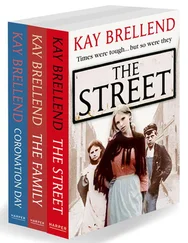‘And how did you both come to be acquainted with Mrs Boyce?’ Styles tried to keep his voice level. ‘Why were you so surprised to see her here?’
The correspondent headed for another stall. Upon it was a wicker basket stuffed with scrawny, clucking chickens. ‘Mrs Boyce has a rare beauty, does she not?’ Kitson’s expression was unreadable.
He has detected my attachment, Styles thought quickly; and despite his casual tone, he disapproves. This is why he was so quiet after our meeting. He has been biding his time before delivering his admonition, trying to catch me off-guard, to chide me as if I were an infatuated schoolboy. Styles felt a defiant anger well up inside him. He would not disavow his feelings, nor would he apologise for them. He loved the divine Mrs Boyce with all his soul. They were fast friends, confidantes even, and he was certain that in time they would become much more–regardless of what Mr Kitson might think about it.
He could not deny, however, that Kitson’s familiar conversation with Mrs Boyce back on the beach had disturbed him a little. Kitson was no rival, of that Styles was certain; his manner, coolly polite to the point of irony, had indicated this clearly enough. Something disquieting had been there, though–a sense of shared history between Mrs Boyce and the Courier correspondents, an earlier chapter Styles was not party to. He had to know more.
‘She does indeed,’ Styles replied forcibly. ‘Beyond any other I have seen.’
Kitson made no reaction to this bold declaration. He pointed out a bird to the stall-holder. The Tartar plucked it from the basket, wrung its neck with practised efficiency, and then exchanged it for two more of the correspondent’s coins.
‘She was to be sent home, you know, by her husband.’ Kitson’s tone was matter-of-fact. ‘Due to the danger of disease. God alone knows how she managed to change his mind. I only hope that her presence here doesn’t prove too problematic.’
Styles frowned. ‘What do you mean?’
Kitson tucked the chicken into a capacious pocket. Its scaly feet stuck out, still twitching spasmodically. ‘She told you of her husband, I take it? Of how things stand between them?’
‘She did.’
Over the course of the voyage from Varna, Mrs Boyce had spoken of her husband at great length. Styles had heard of every trouble visited upon her by Lieutenant-Colonel Nathaniel Boyce–who, by his wife’s account, was a despicable, prideful boor given to all manner of senseless cruelty. Intoxicated by the intimacy that had developed so rapidly between them, Styles had sworn to himself that he would free her, that he would bring this precious lady the happiness she so richly deserved.
Kitson regarded him doubtfully. ‘One must be very careful, my friend, in trying to build an acquaintance with Mrs Boyce, no matter how, ah, innocent it might be. Countless young gentlemen, you understand, have lost themselves in those ebony eyes, nurtured torturous dreams of lying in the tresses of that luxuriant, perfumed hair, and so forth.’ He paused, the slightest suggestion of a smile on his lips. ‘The Lieutenant-Colonel is famously zealous in dispatching his rivals. They say that he has even shot several of them, in duels or elsewhere, to convince them to desist.’
Styles studied Kitson’s face again. Was this a warning? Or was it mockery? Either way, he decided that he would hear no more. ‘Are you trying to frighten me , Mr Kitson? Because if so, I must state that Mrs Boyce and I—’
‘Mr Styles,’ Kitson interrupted firmly, ‘enough games. There are some things you should know about Madeleine Boyce.’
But before he could say any more, a ripple of apprehension ran through the Tartar stall-holders gathered in the yard. They began to talk urgently, gesturing beyond the wall. Styles heard the sound of several score of boots marching in time, approaching the farm at a steady speed. The Courier men turned together to face the gate, their conversation forgotten.
‘Damn it,’ Kitson muttered. ‘Soldiers.’
There was a hard bark of martial instruction, and the first line of an infantry company wheeled into sight. Guided by their corporals, the square of redcoats advanced to the centre of the yard and stamped to attention. The faces beneath their shakos were sallow and lean, and menacing in their impassivity. A sergeant-major appeared behind them, three silver chevrons shining on his arm. Walking slowly towards the manor house, a hand on the hilt of his sword, he made a careful, contemptuous survey of the stalls. Seeing Kitson and Styles, he paused, narrowing his eyes. Kitson touched the brim of his hat with a forefinger. The sergeant-major did not reciprocate.
Styles noticed the soldiers’ regimental numeral. ‘The 99th. Isn’t that Boyce’s regiment?’
Kitson nodded. ‘And best avoided by us Courier men if at all possible. Come, we should buy what else we need and be gone.’
The correspondent made for a hand-cart piled with flaccid wineskins. Its owner managed to pull one out and exchange it for the remaining four of Kitson’s coins without once taking his eyes off the redcoats. Slinging this latest purchase over his arm, Kitson indicated that they should make good their escape. Before they had gone more than a few feet, however, two mounted officers entered the yard, riding across the cobblestones at a canter. Cutting in front of the soldiers, they came to a noisy halt at the manor house’s door, climbed down from their horses and tethered them to a stone water trough.
Kitson was watching them with great curiosity, no longer in such a hurry to depart. ‘Captain Wray and Lieutenant Davy,’ he noted wryly. ‘Old friends of the Courier . I wonder what they could possibly be doing out here?’
The two officers were now conversing intently, consulting a scrap of paper and looking up at the house. Captain Wray was a slight man with a long nose, a sharp, pinched look and a set of whiskers that gave him the unfortunate appearance of a rat wearing a ruff. Lieutenant Davy was taller and somewhat younger, his adolescent countenance all but obscured by a profusion of angry pimples. The sergeant-major marched over to them and made a brief report; the pockmarked Lieutenant glared at Kitson and Styles with open enmity.
‘A–a reconnaissance mission, perhaps?’ Styles suggested uneasily.
Kitson raised an eyebrow but did not reply.
Wray glanced at them with lordly boredom and then turned back to Davy. ‘This is the place, Lieutenant,’ he announced loudly in a high, lisping voice. ‘I am sure of it.’
The Captain pulled open the manor house’s grand double doors and walked inside, with Davy following close behind. At this, the alarm of the Tartars in the yard became more vocal. Several stepped forward, as if to pursue the officers into the building. Seeing this, the sergeant-major faced the company and gave the order to present arms. The soldiers’ abrupt movements, and the synchronised raising of their long-barrelled rifles, successfully checked the stall-holders’ bravery–for the moment, at least.
Styles was growing nervous. The atmosphere in the yard had become charged with violence; it was like being in a tavern seconds before a brawl. He looked quickly at Kitson, hoping for guidance. The correspondent, entirely calm, was moving the sloshing wineskin from one shoulder to the other so that he could take out his pocketbook. Styles suddenly perceived that this unkempt, sardonic fellow, for all his loaded pronouncements and enigmatic expressions, was the same Thomas Kitson whose laudable example had given him such encouragement. I must not quail, the illustrator thought; I must prove myself equal to that which I have taken on. He took a steadying breath and adjusted his hold on his drawing folder, which was growing slippery in his sweating palm.
Читать дальше
